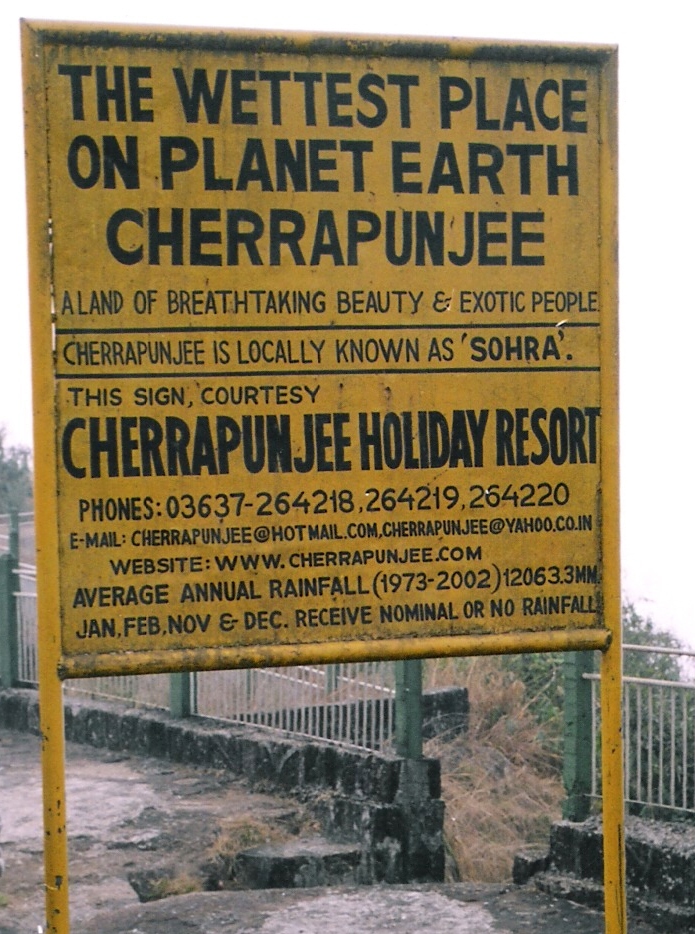The days before Christmas in the English countryside have been dreary with continuous rain and low cloud, so that twilight seems to fall at about two in the afternoon. It has a charm all of its own - the point when the year shrinks back to its source and there is nothing more pleasurable than to draw the curtains as night falls, turn up the heating and settle to a book. The book, in my case, has been
Chasing the Monsoon by Alexander Frater, a traveller's account of tracking the monsoon day by day across the Indian subcontinent as it travels north. It's a time of anxiety and rejoicing - anxiety that the monsoon might fail or be insufficient - rejoicing that when it does come, in full force, it ends the insufferably hot months, stirs new smells from the dust and fertility from the earth.
Frater followed the monsoon in all its manifestations and his quest ended in the town of
Cherrapunji in the far east of
India, which receives its rain from the
Bay of Bengal, and lays claim to being the wettest place on earth. This was perhaps the most mournful posting in the British Raj - unless you were a keen botanist with an interest in mosses, ferns and orchids - which many medical men and colonial administrators were.
In 1850 a doctor called Joseph Hooker spent the monsoon months in the town. He called it 'as bleak and inhospitable as can be imagined' - its climate certainly got to the British. (Frater visited the mournful British graveyard and spotted a number of tombstones with the words 'Died by His Own Hand’.) Hooker was astonished by the absolute and continuous deluge that bombarded the town during the months of his visit. He noted the recordings of a previous resident, Mr Yule:
" who stated that in the month of August, 1841, 264 inches of rain fell, or twenty-two feet...Dr Thompson and I also recorded thirty inches in one day and night, and during the seven months of our stay, upwards of 500 inches fell, so that the total annual fall perhaps greatly exceeded [the] 600 inches, or fifty feet, which had been registered in succeeding years."
Somehow a few wet English days in December seem quite light in comparison! Happy Christmas and New Year.



Roger, This seemed a perfect time to tell you that we are enjoying your blog as much as the books that came before it. Happy winter reading and a Merry Christmas to you!
ReplyDeleteThanks so much for reading, Jackie and Joel - all the best for 2013!
Delete